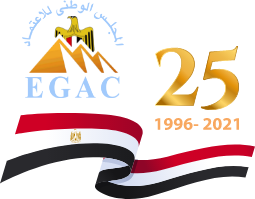Inspection is an accreditation activity that involves examining products, processes, services, their structures, or designs to determine their compliance with specific requirements.
The product is the result of several overlapping processes and may be services such as means of transportation or operating programs such as computer programs or devices, engines, mechanical parts and others.
Inspection activity is a means of ensuring the safety of operation of the processes that people use in their daily lives.
Food safety is one of the most important examples of inspection activities, as is the safety of boilers and pressure devices used in workplaces.
Inspection Bodies may be:
- Any facility that engages in any kind of inspection activities (Product, Process, Service).
- Private or governmental agencies of small or large size and multiple locations, whether fixed or temporary.
Inspection Stages:
- Design / Prototype Processes: the beginning of the Manufacture, During the Manufacture, the Final Product
- Pre-Installation / During Installation Inspection During Operation, During Service
- During Maintenance and After Repair Pre-Loading / Discharging Inspection
- Quantification and Supervision During Loading and Discharging Determining Conformity According to the Contracted Requirements
Why Does the Customer Seeking for Accredited Inspection Body?
Questions facing the client before contracting with the inspection bodies, such as:
1. Does the inspection body have the necessary technical competence to carry out the required inspection activities?
2. Does it have the appropriate human resources, equipment and capabilities?
3. Do the inspectors perform their work impartially and under the rules of good behavior?
4. Do they have a good management system?
5. Do they have a guaranteed system for handling and responding to complaints and Appeals?
The answer to these questions is Accreditation
- Accreditation of inspection activities is the official recognition of the competence of the inspection body to perform the required tasks.
- Accreditation gives the client the appropriate means to identify and select inspection services whose results are based on.
- The accreditation also gives confidence in the efficiency of the inspection services provided by local / governmental authorities and their compliance with legislative requirements. Where the inspection body must show / prove its competence to the accreditation body before obtaining the accreditation.
Advantages of becoming an accredited inspection body:
- The inspection bodies can verify their technical competence and ensure that they apply the appropriate specifications in a satisfactory manner and maintain them through their assessment of conformity assessment bodies (accreditation bodies).
- Accreditation is considered as a means of promoting the inspection bodies, as the accreditation bodies issue lists of accredited inspection bodies and the work areas and activities of the inspection services provided.
- Accredited inspection bodies issue inspection reports or certificates bearing the accreditation symbol, which gives confidence and credibility to the results.
Examples of some inspection sectors in which the inspection bodies accredited by Egyptian Accreditation Council (EGAC) :
- Agricultural Inspection Field
- Food Inspection
- Chemical Inspection
- Engineering Inspection
- Quantitative Inspection and Product quality Inspection
- Textile Inspection
- Maritime Inspection
- Inspection of Welding, Pipes, Valves, and Non-Destructive Tests
Egyptian Accreditation Council (EGAC) is Recognized of ISO/IEC 17020 by International Laboratory Accreditation Cooperation (ILAC), Arab Accreditation Cooperation (ARAC) and African Accreditation Cooperation (AFRAC).
Accreditation According to ISO/IEC 17020 Requirements by EGAC in Inspection Bodies is Internationally Recognized by International Laboratory Accreditation Cooperation (ILAC), Continentally by African Accreditation Cooperation (AFRAC) and Regionally by Arab Accreditation Cooperation (ARAC).

